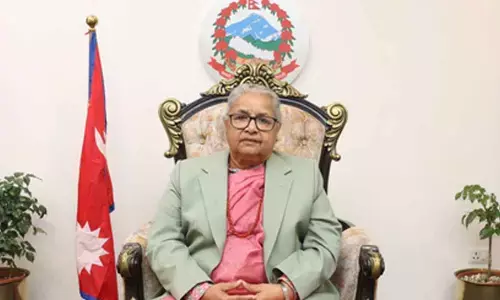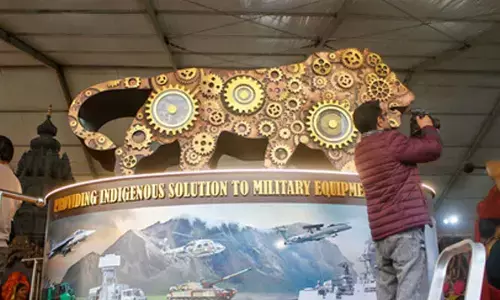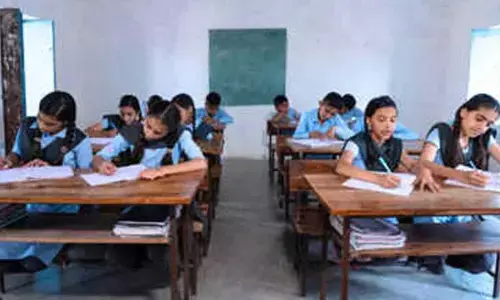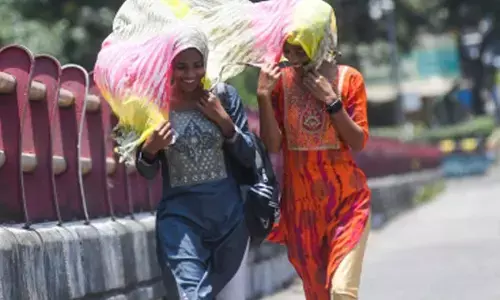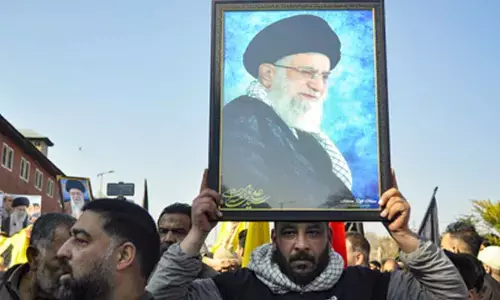India-Maldives relations from ‘India First’ to ‘India Out’
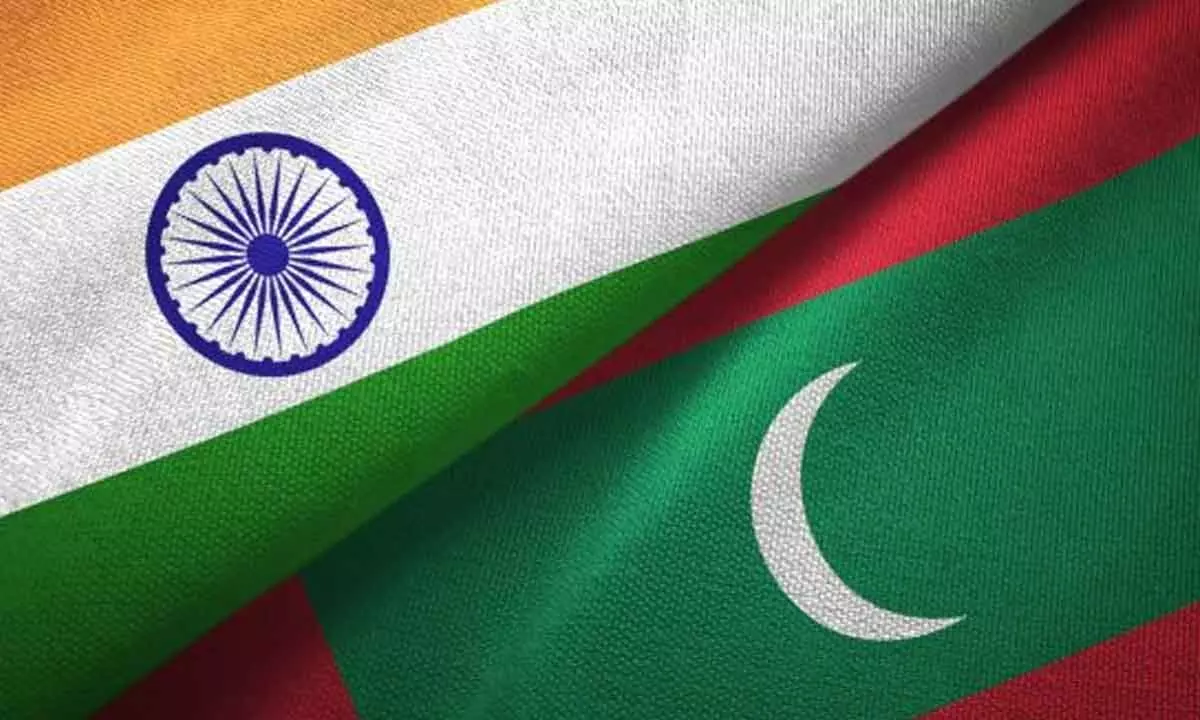
The ongoing India- Maldives war of words had no multiple long-term causes but leading to a cumulative polarisation of the world into a bipolar world order which had existed during cold war times. World politics are changing rapidly as part of such changes, the countries once insignificant now become relevant in determining the local, regional and global political atmosphere.
“Instability anywhere can be a threat to stability everywhere” a saying by John Kerry an American Diplomat and Statesmen, now been practically proven in the recent times. The year 2023 has been a year of wars and conflicts. On one hand Russia-Ukraine conflict polarised the world subsequently, the Israel-Palestine conflict created a neo-cold war situation in the modern times. All these conflicts are not just restricted to their regions but creating chaos even in the far away regions of the world. Since, the world nations have been fragmented on the basis of Ideology, National Interest and other Geo-Political Interests, the conflict of interests are inevitable; but that shouldn’t lead to physical violence, unrest and war. The ongoing India- Maldives war of words had no multiple long-term causes but leading to a cumulative polarisation of the world into a bipolar world order which had existed during cold war times. World politics are changing rapidly as part of such changes, the countries once insignificant now become relevant in determining the local, regional and global political atmosphere. For instance, Israel was not being considered once but now it is playing a predominant role in power politics of the contemporary world. Similarly, Ukraine as part of the Soviet Union once no significant importance, but now it’s defiance makes the world nations to recollect the days of the cold war.
In this context, a small island and climatically vulnerable country Maldives, who obtained considerable volume of assistance from India now abruptly and disgracefully declined to reciprocity. The intentions behind the derogatory remarks of the three Ministers of Maldives were to provoke the religious polarisation, to express solidarity to the Palestine against Israel, to humiliate India, to embrace China. Though they have been suspended, the row has its own negative implications on the socio-economic, political and diplomatic relation of the nations. To understand this issue one must have the holistic approach than the conventional approach.
Significance of Maldives
After Maldives gained independence, India was the first country to recognize it as an independent nation in 1965. Maldives was strategically significant for India in maritime security, regional stability and counter terrorism, etc,. Thus, India has been supporting Maldives in economic partnership, infrastructure development, capacity building programs for socio-economic development. There are several instances worthwhile to mention that India has helped Maldives such as: in 1988 Indian Armed Forces helped Maldives from coup attempt under the banner of “Operation Cactus”. Under Addu Reclamation and Shore Protection Project, India has built a drug detoxification and rehabilitation center along with 20 high impact community development projects such as health care, education, fisheries, livelihood, tourism, sports and culture, etc,. Under “Operation Neer -2014”, India supported Maldives to overcome the shortage of drinking water. India has also emerged as Maldives’ second largest trade partner in 2022 despite its’ FTA with China in 2017. In 2022, the National College for Policing and Law Enforcement(NCPLE) was launched by the Government of India in Maldives. Further, “Operation Sanjeevani” which approximately 6.2 tons of medical essentials were supplied to Maldives to fight against Covid-19. Out of all these operations Maldives has received maximum benefit especially in socio-economic, humanitarian help and infrastructure development etc., India has done all these without any expectation. Above all in 2023, India topped the chart in sending the largest number of tourists to the Maldives with around 11.8% market share which is a big boost for their economy.
From “India First” to “India Out”
Former President of Maldives Mr. Ibrahim Mohamed Solih proclaimed “India First Policy”, which reflects India as the geographical long-term friend and protector for Maldives. It comes under the Indian sphere of influence in south Asia. Further, India has also played a significant and positive role as a Net Security Provider for the benefit of the smaller and vulnerable countries like Maldives. Above all, India believes in non-reciprocity with its neighbours so, it has adopted “Neighborhood First Policy”, in which Maldives got appropriate priority. But unfortunately, as a results of the recent developments in south Asia and also in Indian Ocean Region, China has been playing a significant role in grabbing and misguiding the nations by following debt trap policy, Belt and Road Initiative, String of Pearls, etc., most of which are unsustainable and benefits China than the dependent and needy countries like Maldives. Maldives is one such nation which trapped after Pakistan, Nepal and Sri Lanka, etc., moving towards unsustainable developmental path shown by China.
In this context, the relations between India, China –Maldives have been sensitive to the change in leadership and their regime in Maldives. Therefore, the bilateral relations of Inia and Maldives cannot be analysed without understanding the Chines’ intervention in Maldives. In recent Maldives election Mohamed Muizzu won with 54% votes over Ibrahim Mohamed Solih. Muizzu’s main election campaigning slogan was “India out”, the whole election campaign was whether Maldives go with India or China. His another demand was to free the former President Abdulla Yameen who was charged with corruption, money laundering and giving false information to the police. Thus, the Criminal Court sentenced 5-year imprisonment and 5 million USD fine to Yameen. Under his leadership there was a major shift of the Maldives stance from pro-India to pro-China by signing 12 pacts including FTA after Pakistan. During Yameen’s Presidential tenure China-Maldives Friendship Bridge which also known as “Sinamale bridge” was initiated in 2015 and inaugurated in 2018 between International Airport and Male, the capital of Maldives. Another major move that happened during his regime was Maldives joined Chinas’ strategic Belt and Road Initiative. It was under Yameen’s leadership, the present elect President Muizzu worked as Minster of Hosing and Environment, during this time he has oversaw several infrastructural projects including the Sinamale bridge. It was here where he got attracted towards China and its debt trap diplomacy. Thus, he has given a slogan of “India out” which in other words to “China in”.
Implications
India and China contestation in defense, trade and geo-political factors are growing strategic importance in the region. Thus, Maldives a south Asian island nation playing a crucial role in making imbalance in geo-political economic and trade politics between India and China. Though, the issue has no such a huge magnitude but the chaos which it has created may have long-term implications. India as an emerging nation, largest economy and leading democracy has to rethink seriously for the self-reliant and self-sufficient, as per tourism and development is concerned. Thus, projecting Lakshadweep as an alternative to the Maldives is contextual but, it may not reach the expectations of the tourists as of now. However, the development of Lakshadweep as a destination for tourists, it is important to formulate a systematic and sustainable long term plan of action for the development of eco-friendly tourism.
(Writer is an Assistant Professor at Department of Political Science, UPGCS-Osmania University, Hyderabad)


